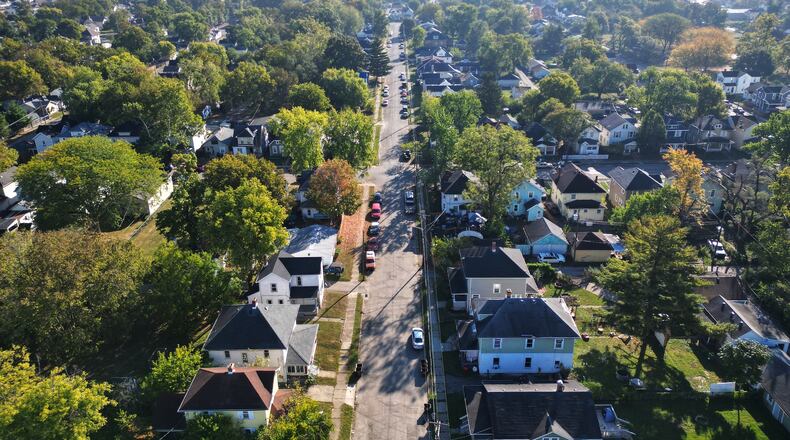They have had four meetings and a recurring theme throughout has been that they can’t force the legislature to consider or act on any of their ideas. Given that, Lake County Auditor Chris Galloway questioned their purpose.
“Is it the goal of this committee to try to put together a report that we think the legislature will like and adopt, or is it the goal of this committee to provide to the governor what we think should happen, regardless of what the legislature may or may not do,” Galloway said.
They were discussing House Bill 186, which would limit increases in property tax revenues for school districts at the 20-mill floor to the three-year average rate of inflation. The bill was amended in the committee process — eliminating a provision that would “partially offset any reductions in the district’s property tax revenue” — and the group was considering a recommendation that would say the amended version is okay, but they prefer the original.
Dublin Schools Superintendent John Marschhausen said “the general assembly is going to do what they want to do anyway.”
Pat Tiberi, co-chair of the group and former state legislator and congressman, said if he were the bill sponsor and they amended the bill for a good reason, they won’t heed the group’s recommendation.
“What’s the point, they’re not going to go back to the original version. I understand what you’re trying to say, what we all prefer generally,” he said. “But I think there’s a fine line when we go into a process where we are a body that, based upon public statements, leaders in the legislature weren’t exactly doing cartwheels that this body was formed, so you always catch more bees with honey.”
Warren County Auditor Matt Nolan, who is president of the County Auditors Association of Ohio, told this news outlet he and others on the group feel their work likely won’t have an immediate impact, “since many leading legislators have said that they don’t believe in this group or care what we have to say.”
Galloway said he thinks the group ought to make recommendations based on what they think is best.
“I’m kind of also looking at this through the eyes of what did the governor ask from us,” he said. “I don’t recall him saying we come up with what the legislature will like, he said tell me how to fix property taxes.”
Former Ashtabula County auditor Rep. David Thomas, who House leadership picked to shepherd property tax reform, co-sponsored HB 186. He told this news outlet they won’t likely remove the amendment.
DeWine formed the group after vetoing four of five measures the legislature put in the $60 billion budget. He gave the group — comprised of two former state lawmakers, three county commissioners, two county auditors, a county treasurer, two school superintendents and a mayor — until Sept. 30 to submit a tax reform report.
Many in the legislature have said this group is superfluous because the Joint Legislative Committee on Property Tax Review and Reform spent half of last year studying the issue. They offered 21 measures the General Assembly “should consider,” including beefing up budget commission powers, eliminating replacement levies and adjusting the 20-mill floor calculation — the items the governor vetoed and were reviewed by the new group two weeks ago.
Thomas was a fierce critic of creating the group, but now says they could be valuable in terms of convincing the governor “these things we put in the budget were actually really not crazy” and “they’re not outlandish things that would have destroyed schools.”
HB 186 has had four hearings in the House Ways and Means Committee and is a favorite with the group to help solve the huge property tax crisis.
Nolan told the group this was the CAAO’s idea, “the capping of growth on the 20-mill floor is the best way to stop these dramatic increases in taxes without a vote.”
“The increase that we saw in property taxes was substantial,” he said. “We don’t want that phantom revenue coming back right; we don’t want the state treating values like they went up 30% when we’re saying no they only went up 10%.”
Last week, the governor’s committee spent the first hour getting a primer on school funding, which consumes the lion’s share of property taxes.
The group is meeting weekly and they plan to revisit a couple more ideas vetted by the first committee like the “circuit breaker” concept that gives tax breaks based on the percentage of income paid in property taxes, tax deferrals and expanding the Homestead Exemption.
About the Author
